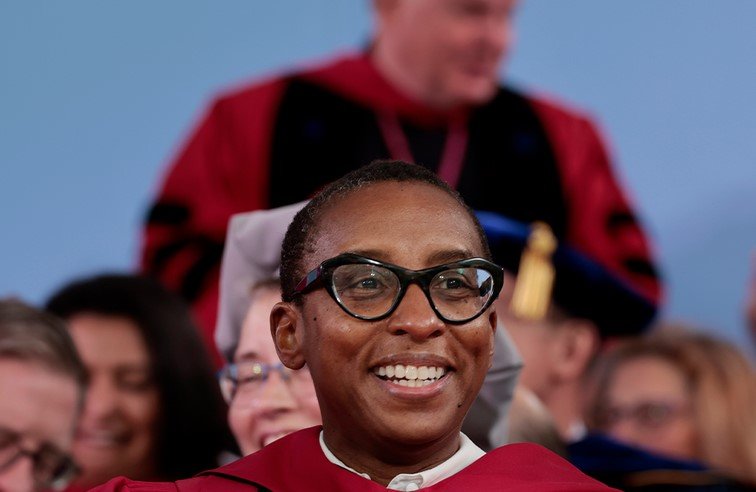A surprise announcement
Harvard University announced on Wednesday that its president, Claudine Gay, has decided to step down from her position, effective immediately. Gay, who became the 30th president of Harvard in July 2023, cited personal reasons for her departure, but did not elaborate on the details.
The announcement came as a shock to many in the Harvard community and beyond, as Gay was widely seen as a trailblazer and a visionary leader. She was the first woman, the first person of color, and the first openly gay person to lead the prestigious institution. She was also a renowned scholar of government and African American studies, and a former dean of the Faculty of Arts and Sciences.
Gay’s tenure as president, however, was marred by several controversies and challenges, both internal and external. She faced criticism for her handling of the Hamas attacks on October 7, 2023, which killed four Harvard students and injured dozens more.
She was accused of being slow to denounce the students who defended the terrorist acts, and slow to condemn antisemitism on campus. She also faced backlash for her testimony at a congressional hearing on antisemitism in academia, where she refused to say whether Harvard considered calling for the genocide of Jews a violation of its conduct policies.
A tarnished reputation
Gay’s academic reputation also came under fire, after a data analyst questioned the validity of the research that helped her secure tenure at Stanford University, where she taught before joining Harvard.
The data analyst, Jonatan Pallesen, who works for the Confederation of Danish Industry in Copenhagen, tweeted that he had reviewed her data use in her doctoral dissertation, and a 2001 paper published in the American Political Science Review.
He found that the paper, which claimed that black congressional representation increased political participation among African Americans, was flawed and incomplete.

Pallesen’s findings were followed up by Christopher Brunet, a contributing editor at The American Conservative, who discovered that Gay had refused to share the data that supported her claims with other researchers, which is considered a breach of academic norms. Brunet also alleged that Gay had plagiarized parts of her dissertation and other papers from other sources, without proper citation.
Gay denied the allegations of plagiarism and data manipulation, and said that she had followed the standards of her field at the time. She also said that she had shared her data with some researchers who had requested it, but not with others who had “ulterior motives”. She said that she was proud of her scholarly work, and that it had been peer-reviewed and published in reputable journals.
A divided campus
Gay’s resignation has sparked mixed reactions among the Harvard faculty, students, alumni, and donors. Some have expressed support and gratitude for her leadership, and praised her for her achievements and initiatives. They said that she had advanced Harvard’s excellence in teaching, research, and service, and had championed diversity, inclusion, and innovation. They also said that she had faced unfair and disproportionate scrutiny and criticism, and that she had been a victim of racism, sexism, and homophobia.
Others, however, have expressed disappointment and frustration with her leadership, and said that she had failed to uphold Harvard’s values and standards. They said that she had mishandled the crisis caused by the Hamas attacks, and had shown a lack of moral clarity and courage.
They also said that she had damaged Harvard’s reputation and credibility, and had betrayed the trust of the academic community. They said that she had made the right decision to resign, and that Harvard needed a new leader who could restore its integrity and unity.
A search for a successor
Harvard’s governing board, the Harvard Corporation, has appointed Lawrence Bacow, the former president of Tufts University and a Harvard professor, as the interim president, while it conducts a search for a permanent successor. Bacow, who served as president of Tufts from 2001 to 2011, said that he was honored and humbled by the opportunity, and that he would do his best to lead Harvard through this difficult transition.
The Corporation said that it would consult with various stakeholders, including faculty, students, staff, alumni, and donors, to identify the qualities and qualifications that the next president should have. It also said that it would seek a diverse and inclusive pool of candidates, and that it would conduct the search with transparency and integrity. It said that it hoped to announce the new president by the end of the academic year.



































